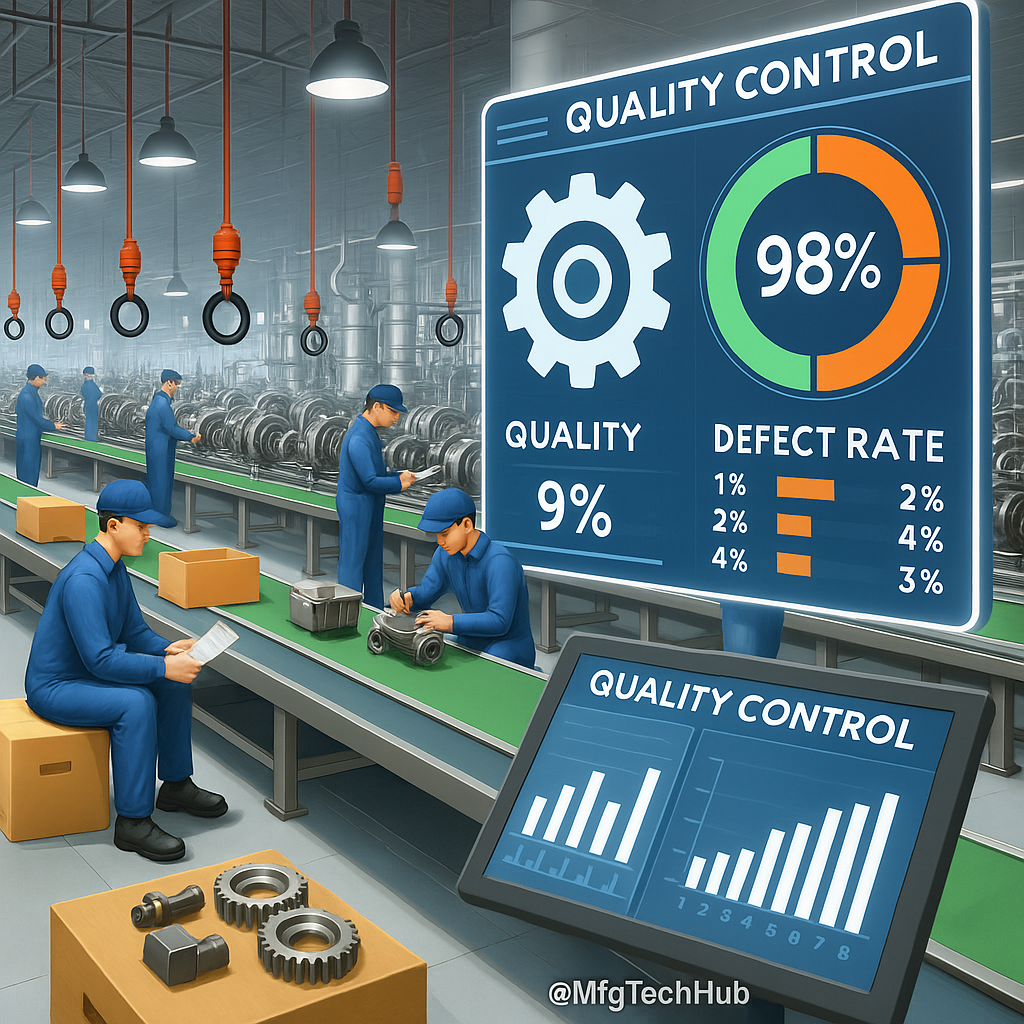MES Advantages: Improved Production Efficiency and Flexibility

Introduction
Manufacturing Execution Systems (MES) are no longer just optional tools but strategic enablers for organizations striving to thrive in the digital era of Industry 4.0. With the global manufacturing sector facing pressures from shorter product lifecycles, fluctuating customer demands, and increasing competition, companies are searching for ways to remain efficient yet flexible. MES acts as a bridge between the shop floor and enterprise-level planning, delivering actionable intelligence that helps businesses optimize their operations.
Beyond simply tracking production, MES reshapes how factories operate by reducing downtime, improving visibility, and allowing manufacturers to pivot quickly in response to market changes. The advantages of MES can broadly be categorized into two key areas: production efficiency and operational flexibility. Let us explore these in detail.
Improved Production Efficiency with MES

1. Real-Time Monitoring and Control
- Description: MES provides live visibility across machines, processes, and workforce performance. Instead of waiting for end-of-shift reports or manual logs, managers can instantly identify bottlenecks and inefficiencies.
- Benefits:
- Prevents extended downtime by resolving issues as they occur.
- Maximizes Overall Equipment Effectiveness (OEE), a key manufacturing metric.
- Improves data-driven decision-making by replacing assumptions with real-time insights.
- Example: A food manufacturer integrated MES into their packaging lines. When a sealing machine malfunctioned, the MES dashboard instantly flagged performance anomalies. Maintenance teams acted immediately, reducing unplanned downtime and boosting throughput by 15% within weeks.
This type of visibility creates a more proactive environment where issues are addressed before they escalate into expensive failures.
2. Automated Workflow Management
- Description: Traditional workflows often require manual coordination, which can be error-prone and time-intensive. MES automates critical steps, ensuring standardized processes are consistently followed.
- Benefits:
- Eliminates repetitive manual interventions.
- Improves consistency in production outcomes.
- Shortens cycle times and accelerates output.
- Example: An electronics company applied MES to automate printed circuit board assembly. Tasks like soldering, inspection checkpoints, and routing were managed automatically. The result was a 20% faster production cycle and fewer defects caused by human error.
Automated workflows not only improve efficiency but also free human operators to focus on higher-value tasks like innovation and problem-solving.
3. Enhanced Quality Control
- Description: MES embeds quality checks directly into production workflows. Instead of discovering quality issues at the end of the line, defects are flagged in real time.
- Benefits:
- Minimizes rework and scrap, saving costs on wasted materials.
- Ensures compliance with stringent industry standards, especially in pharmaceuticals and aerospace.
- Improves brand trust by delivering consistently high-quality products.
- Example: A pharmaceutical plant implemented MES with inline quality checkpoints for tablet compression. This reduced batch-level defects by 30% and guaranteed regulatory compliance, a crucial factor in the highly regulated drug industry.
By embedding quality into the process rather than treating it as a separate step, MES transforms manufacturing into a culture of “right first time.”
Enhanced Flexibility with MES
1. Adaptability to Changing Demands
- Description: Modern markets demand agility. MES enables quick schedule adjustments and workflow reconfiguration without halting entire lines.
- Benefits:
- Responds rapidly to changing consumer demands and market trends.
- Supports smaller, custom batches while maintaining efficiency.
- Example: An automotive parts supplier used MES to reschedule production for customized spare parts. What once took weeks of planning could be executed within hours, reducing lead time by 25%.
This flexibility helps companies remain competitive in markets where personalization and fast delivery are key differentiators.
2. Modular Production Capabilities

- Description: MES supports modular production environments where manufacturers can switch product types without lengthy downtime.
- Benefits:
- Enables wider product variety without sacrificing efficiency.
- Minimizes setup times when transitioning between product lines.
- Example: A cosmetics manufacturer used MES to transition seamlessly between skincare creams and lotions. With MES-guided setup instructions, downtime between product batches was reduced by 40%.
For industries with seasonal or highly varied demand, such as consumer goods, modular production is a game-changer.
3. Integration with Enterprise Systems
- Description: MES doesn’t operate in isolation. It integrates with ERP, supply chain management, and CRM tools, creating a connected manufacturing ecosystem.
- Benefits:
- Synchronizes production activities with real-time inventory data and demand forecasts.
- Improves planning accuracy and ensures optimal resource allocation.
- Supports a data-driven culture where production aligns seamlessly with business goals.
- Example: A consumer goods manufacturer integrated MES with their ERP system. This allowed real-time alignment between production orders and stock levels, eliminating both overproduction and stockouts.
This integration makes MES a vital nerve center, ensuring that decisions at the shop floor resonate across the entire value chain.
Benefits Overview
| Efficiency | Flexibility |
|---|---|
| Real-time monitoring for instant insights | Adaptability to changing market demands |
| Workflow automation for consistency | Modular production for diverse offerings |
| Quality checks to minimize defects | Integration with enterprise systems |
Conclusion
MES is not just a software investment—it is a strategic enabler of operational excellence. By driving efficiency through automation, real-time monitoring, and quality control, MES ensures that manufacturers make the most of their resources. At the same time, its flexibility in handling diverse product lines, rapid changes, and enterprise-wide integration positions businesses to thrive in volatile markets.
In essence, MES empowers organizations to become more agile, resilient, and competitive. Whether it’s improving machine utilization, enabling faster response to custom orders, or aligning production with demand, MES continues to prove itself as an indispensable pillar of smart manufacturing.
